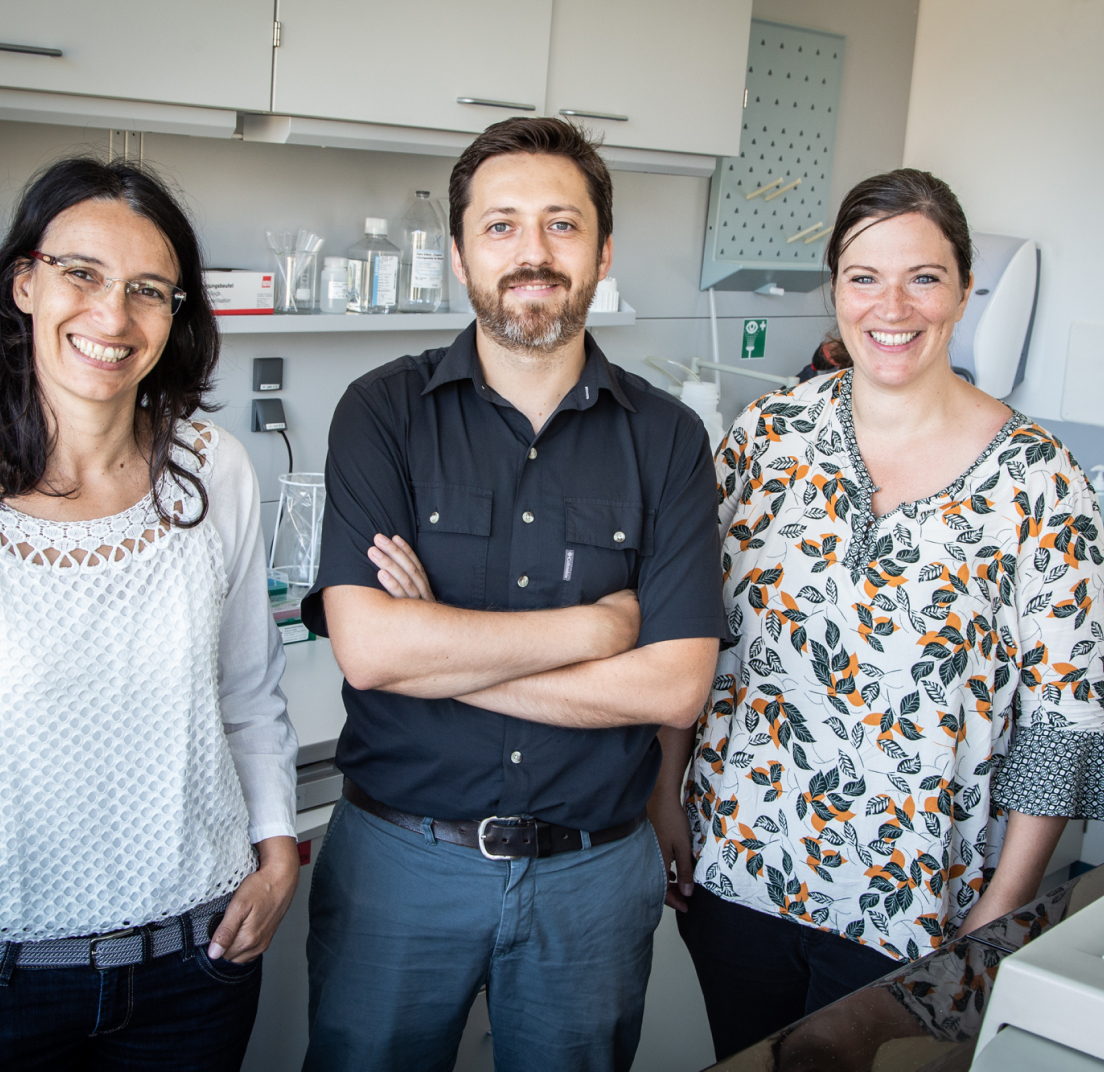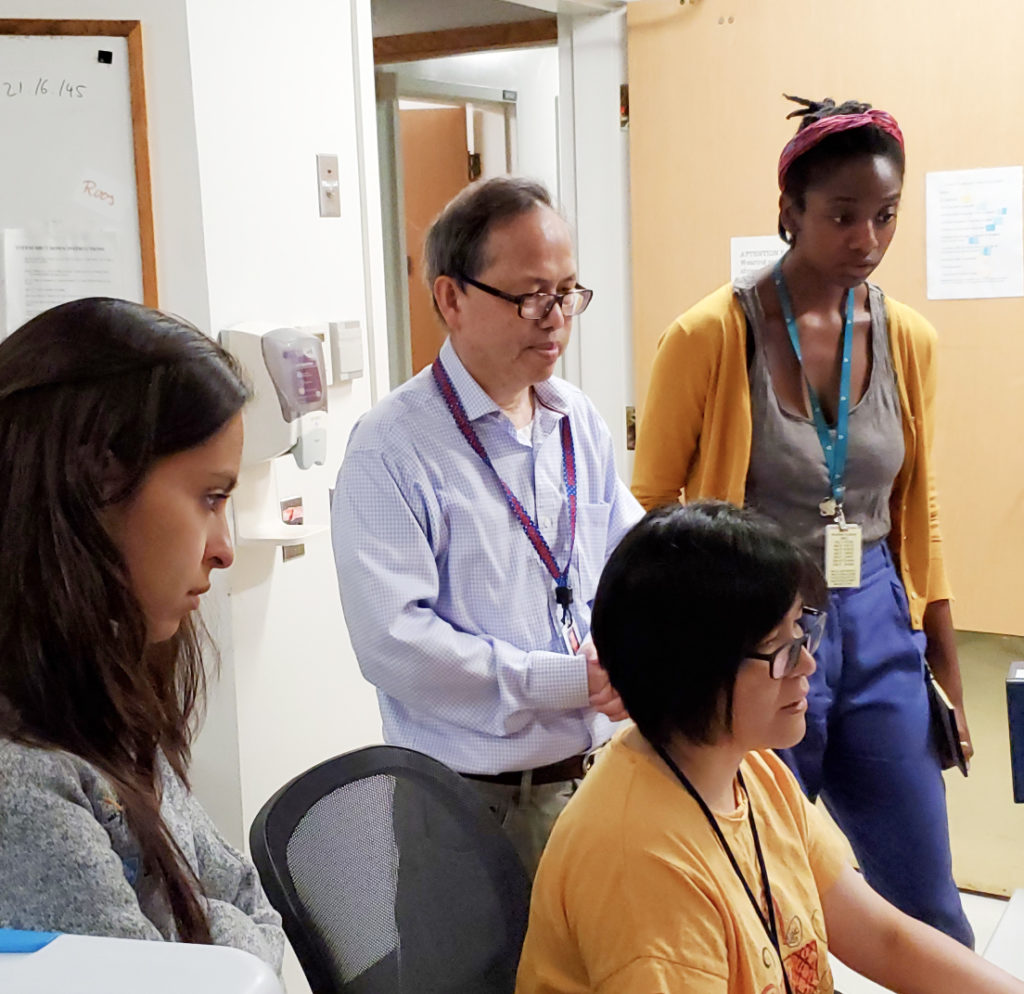“Physiological and cognitive function in patients with PASC or ME before and after
inspiratory muscle training”Principal Investigator: Heather Edgell (PhD)
York University
“Physiological and cognitive function in patients with PASC or ME before and after
inspiratory muscle training”Principal Investigator: Heather Edgell (PhD)
York University

Collaborators: Riina Bray, MD, Angela Cheung, MD, PhD, Kathleen Kerr, MD, and Farah Tabassum, MD University of Toronto
Heather Edgell, PhD, (Principal Investigator), is an associate professor in the Kinesiology and Health Sciences Department at York University where she founded the Women’s Cardiovascular Health Lab, an autonomic and cardiorespiratory testing lab.
Lauren Sergio, PhD, (Principal Investigator) is a professor in the Kinesiology and Health Sciences Department at York University working on projects related to the neural control of movement.
Angela Cheung, MD, (Principal Investigator), is a senior scientist and staff general internist at the University Health Network whose research interests include integrative medicine, functional outcomes, quality of life and health services research.
The team will provide people with ME/CFS, people with Long Covid and a comparator group of healthy controls with an eight-week period of inspiratory muscle training (IMT) to strengthen the muscles used to breathe.
They hypothesize that a reduction of hyperventilation (which has been observed in both conditions) will increase plasma levels of carbon dioxide and improve brain blood flow, brain function and cognition. The investigators will measure a number of cardiovascular and pulmonary markers of health at baseline and following the IMT intervention.
Study Summary
After the severe acute respiratory syndrome (SARS-CoV) pandemic of 2003, 27% of survivors in Hong Kong had developed ME/CFS, commonly known as chronic fatigue syndrome. It was found that SARS survivors had persistent functional disability one year after discharge from the ICU due to impaired muscle function.
Subsequently in 2011, another group of researchers investigated a sub-set of SARS survivors who developed musculoskeletal pain, weakness, fatigability and shortness of breath and found sleep abnormalities similar to ME patients.
These changes are already frequently observed in survivors of the current COVID-19 pandemic, which is an infection of the SARS-CoV-2 virus. These patients have anecdotally been known as “longhaulers,” yet as of February 2021, they are now known as having “Post Acute Sequelae of SARS-CoV-2” or PASC.
Recently, it was noted that in a cohort of 234 Covid-19 survivors, ~30% experienced persistent symptoms including fatigue (most common) and cognitive dysfunction in the form of “brain fog.” Some patients still experienced these symptoms 9 months after infection. In Canada and the United States, there have been over 30 million cases of Covid-19, and if previous observations hold true (i.e. 30% of survivors develop ME) over 9 million people in Canada and the United States alone could already be developing ME from their SARS-CoV-2 infection.
In these populations, exercise has been shown to be a beneficial treatment avenue. Due to fatigue, however, it is very difficult to perform and to maintain adherence to a program. Therefore, we are suggesting that inspiratory muscle training (IMT) can be implemented as it is easily accessible commercially and it is relatively easy to conduct, even in a supine posture.
Patients with current Covid-19 infection or PASC are known to experience hyperventilation and IMT training has been shown to reduce hyperventilation in chronic conditions such as heart failure. This reduction of hyperventilation will increase arterial levels of carbon dioxide back to normal levels which will increase brain blood flow and increase brain function and cognition.
We hypothesize that PASC patients will have developed ME symptoms and will display vascular and pulmonary dysfunction. We further hypothesize that eight weeks of IMT will improve both vascular and pulmonary function in PASC and ME.
In patients with PASC or ME and a group of healthy controls, we will measure autonomic symptoms, ME symptoms, vascular function, cardiovascular response to upright tilt, pulmonary function, cognitive function and the breathing and brain blood flow responses to low oxygen and low carbon dioxide. These measurements will be conducted before and after an eight-week IMT training protocol to observe improvements.



350 N Glendale Ave.
Suite B #368
Glendale, CA 91206
SolveCFS@SolveCFS.org
704-364-0016
| Cookie | Duration | Description |
|---|---|---|
| cookielawinfo-checkbox-analytics | 11 months | This cookie is set by GDPR Cookie Consent plugin. The cookie is used to store the user consent for the cookies in the category "Analytics". |
| cookielawinfo-checkbox-functional | 11 months | The cookie is set by GDPR cookie consent to record the user consent for the cookies in the category "Functional". |
| cookielawinfo-checkbox-necessary | 11 months | This cookie is set by GDPR Cookie Consent plugin. The cookies is used to store the user consent for the cookies in the category "Necessary". |
| cookielawinfo-checkbox-others | 11 months | This cookie is set by GDPR Cookie Consent plugin. The cookie is used to store the user consent for the cookies in the category "Other. |
| cookielawinfo-checkbox-performance | 11 months | This cookie is set by GDPR Cookie Consent plugin. The cookie is used to store the user consent for the cookies in the category "Performance". |
| viewed_cookie_policy | 11 months | The cookie is set by the GDPR Cookie Consent plugin and is used to store whether or not user has consented to the use of cookies. It does not store any personal data. |
Please let us know more about you.
Please let us know more about you.
Please let us know more about you.
Please let us know more about you.